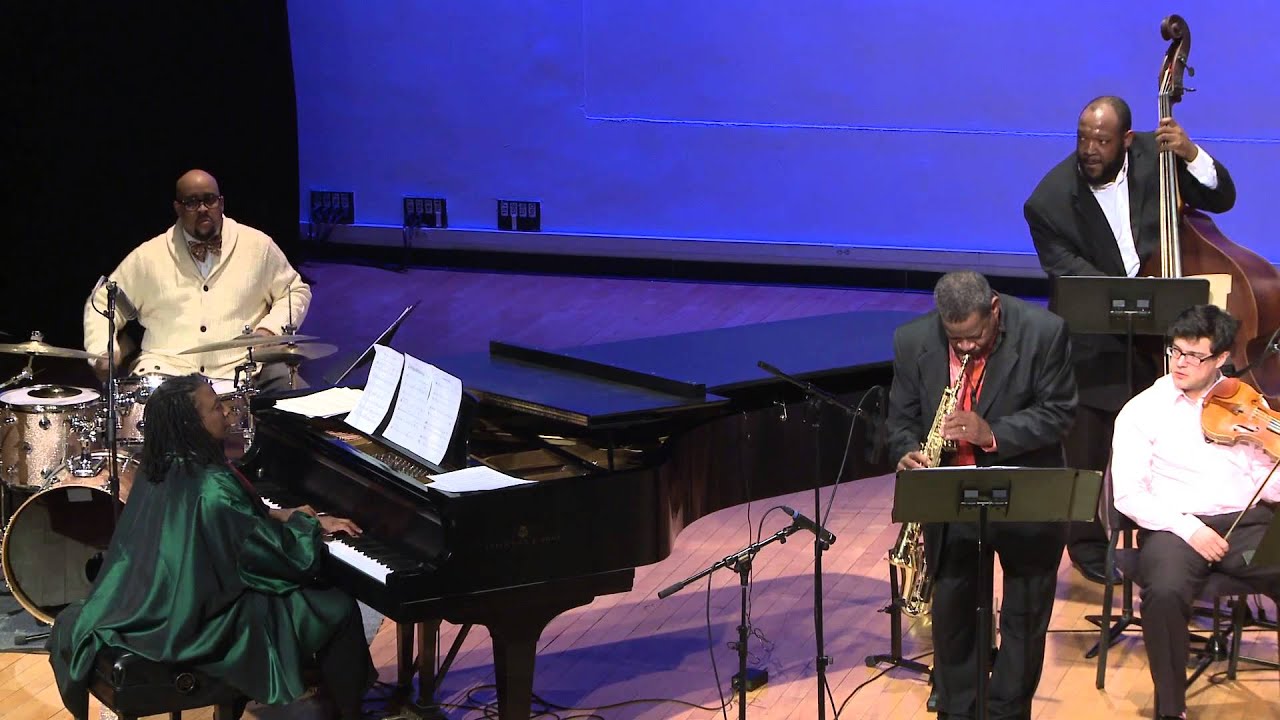ROMARE BEARDEN: A BLACK ODYSSEY | This Train . . . A Musical Meditation | Geri Allen & Dwight Andrews & the Vega String Quartet | February 12, 2015
In 1977, Romare Bearden (1911-1988), one of the most powerful and original artists of the 20th century, created a cycle of 20 collages and watercolors (miniature variations of his collages) based on Homer’s epic poem The Odyssey. Rich in symbolism and allegorical content, Bearden’s “Odysseus Series” created an artistic bridge between classical mythology and African-American culture. The works conveyed a sense of timelessness and the universality of the human condition, but their brilliance was displayed for only two months in New York City before being scattered to private collections and public art museums. The Miriam and Ira D. Wallach Gallery showing of Romare Bearden: A Black Odyssey was the first time these works will be seen again in New York City since they were created. Romare Bearden: A Black Odyssey underscores the fact that this tale of the dislocated but heroic traveler’s search for a way home is Bearden’s own most pervasive and important artistic theme. The addition of a collage from Bearden’s 1968 series, “House in Cotton Field,” invites the viewer to consider the artist’s Homeric collages not as rarefied explorations of Western antiquity, but as evocations of familiar seekers of a welcoming place to stay. The exhibition features some 50 works, including collages, watercolors, and line drawings as well as additional compositions relating to Bearden’s interest in classical themes, such as examples of his mid-1940s drawings based on Homer’s other epic, The Iliad. The additional works greatly increase the resonance and power of the original 20 collages and examine Bearden’s motivations in creating these works within the context of the “Odysseus Series” and his overall body of work. For the Wallach Gallery presentation, singular materials were added from Columbia’s Rare Book and Manuscript Library, including a 1935 special edition of James Joyce’s Ulysses produced by The Limited Editions Club. The book contains reproductions of 20 preliminary drawings and six etchings by Henri Matisse, who based his illustrations on six episodes in Homer’s Odyssey. Several of Matisse’s original etched plates will also be displayed, allowing visitors to consider a related but very different artistic visualization of the Odyssey. The Limited Editions Club was founded in 1929 by George Macy, who endeavored to match classic texts with fine artists, creating distinctive volumes that became renowned in rare book circles. Visitors to the Wallach will be able to see the continuity of this tradition with the addition of the lush 1983 volume, Poems of the Caribbean by Derek Walcott, selected and illustrated by Bearden. Almost 50 years later, the Bearden-Walcott Limited Editions Club publication offers another yet another example of visual artists engaging the written word. Born in Charlotte, N.C., Bearden moved with his family to Harlem as a young child, part of the migration of African Americans from the South to greater opportunity in the North. Throughout his career, Bearden created images of the lives of travelers on their way to and from home, a theme no more powerfully explored than in his “Odysseus Series.” Bearden had examined classical themes before, but the “Odysseus Series” expanded his exploration of literary narratives and artistic genres by presenting his own personal reinterpretation of the subject. Romare Bearden: A Black Odyssey is curated by English and jazz scholar Robert G. O’Meally, the Zora Neale Hurston Professor of English and Comparative Literature and founder and former director of the Center for Jazz Studies at Columbia. The exhibition is complemented by a fully illustrated companion book of the same name (DC Moore Gallery, 2008), written by O’Meally. The book includes full-color images of Bearden’s work and an essay by O’Meally. The Smithsonian Institute has also developed a comprehensive website for the exhibition project. “In creating a black Odyssey series, Bearden not only staked a claim to the tales of ancient Greece as having modern relevance, he also made the claim of global cultural collage—that as humans, we are all collages of our unique experiences,” said O’Meally. “Indeed, Bearden does not merely illustrate Homer – he is Homer’s true collaborator, and he invites us as viewers to inherit Homer’s tale and interpret it as our own.”
source

